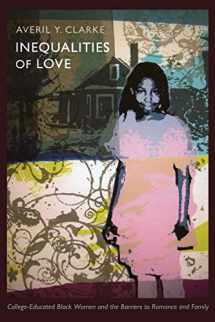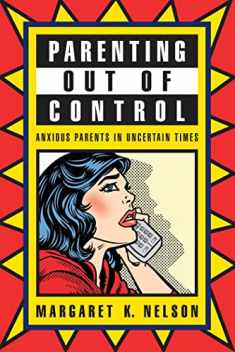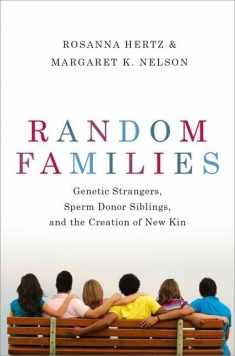
Inequalities of Love: College-Educated Black Women and the Barriers to Romance and Family (Politics, History, and Culture)
ISBN-13:
9780822350088
ISBN-10:
0822350084
Author:
Averil Y. Clarke
Publication date:
2011
Publisher:
Duke University Press Books
Format:
Paperback
432 pages
Category:
Demography
,
Social Sciences
,
Women's Studies
,
Marriage & Family
,
Sociology
FREE US shipping
on ALL non-marketplace orders
Marketplace
from $26.73
USD
Marketplace offers
Seller
Condition
Note
Seller
Condition
Used - Very Good
Very Good; The Text Is Clean. Paperback 409 Pages With The Index.
Book details
ISBN-13:
9780822350088
ISBN-10:
0822350084
Author:
Averil Y. Clarke
Publication date:
2011
Publisher:
Duke University Press Books
Format:
Paperback
432 pages
Category:
Demography
,
Social Sciences
,
Women's Studies
,
Marriage & Family
,
Sociology
Summary
Inequalities of Love: College-Educated Black Women and the Barriers to Romance and Family (Politics, History, and Culture) (ISBN-13: 9780822350088 and ISBN-10: 0822350084), written by authors
Averil Y. Clarke, was published by Duke University Press Books in 2011.
With an overall rating of 3.5 stars, it's a notable title among other
Demography
(Social Sciences, Women's Studies, Marriage & Family, Sociology) books. You can easily purchase or rent Inequalities of Love: College-Educated Black Women and the Barriers to Romance and Family (Politics, History, and Culture) (Paperback) from BooksRun,
along with many other new and used
Demography
books
and textbooks.
And, if you're looking to sell your copy, our current buyback offer is $0.53.
Description
Inequalities of Love uses the personal narratives of college-educated black women to describe the difficulties they face when trying to date, marry, and have children. While conventional wisdom suggests that all women, regardless of race, must sacrifice romance and family for advanced educations and professional careers, Averil Y. Clarke’s research reveals that educated black women’s disadvantages in romance and starting a family are consequences of a system of racial inequality and discrimination. The author analyzes the accounts of black women who repeatedly return to incompatible partners as they lose hope of finding “Mr. Right” and reject unwed parenting because it seems to affirm a negative stereotype of black women’s sexuality that is inconsistent with their personal and professional identities. She uses national survey data to compare college-educated black women’s experiences of romance, reproduction, and family to those of less-educated black women and those of white and Hispanic women with degrees. She reports that degreed black women’s lives include less marriage and sex, and more unwanted pregnancy, abortion, and unwed childbearing than college-educated white and Hispanic women. Black women’s romantic limitations matter because they constitute deprivation and constraint in romance and because they illuminate important links between race, class, and gender inequality in the United States. Clarke’s discussion of the inequities that black women experience in romance highlights the connections between individuals’ sexual and reproductive decisions, their performance of professional or elite class identities, and the avoidance of racial stigma.


We would LOVE it if you could help us and other readers by reviewing the book
Book review

Congratulations! We have received your book review.
{user}
{createdAt}
by {truncated_author}




